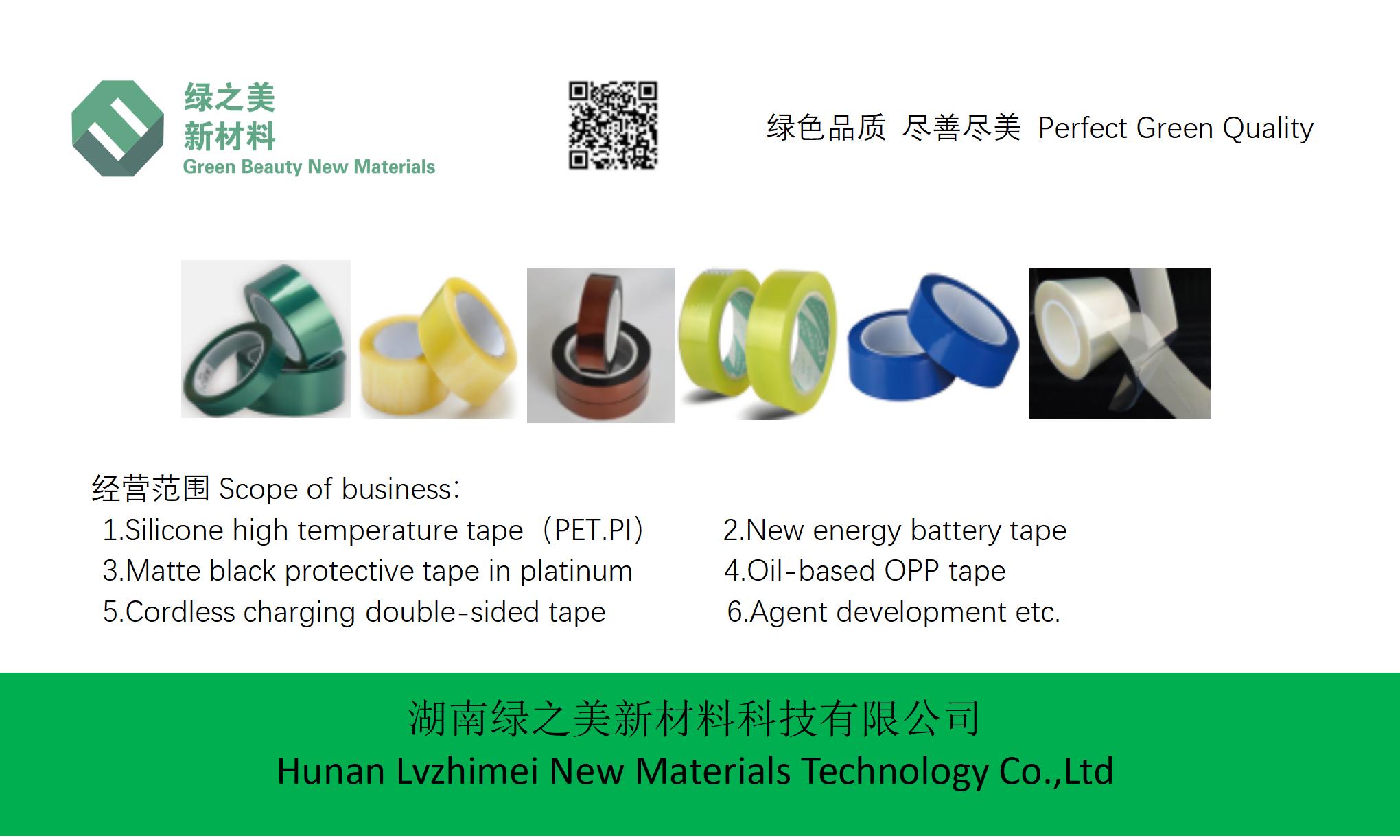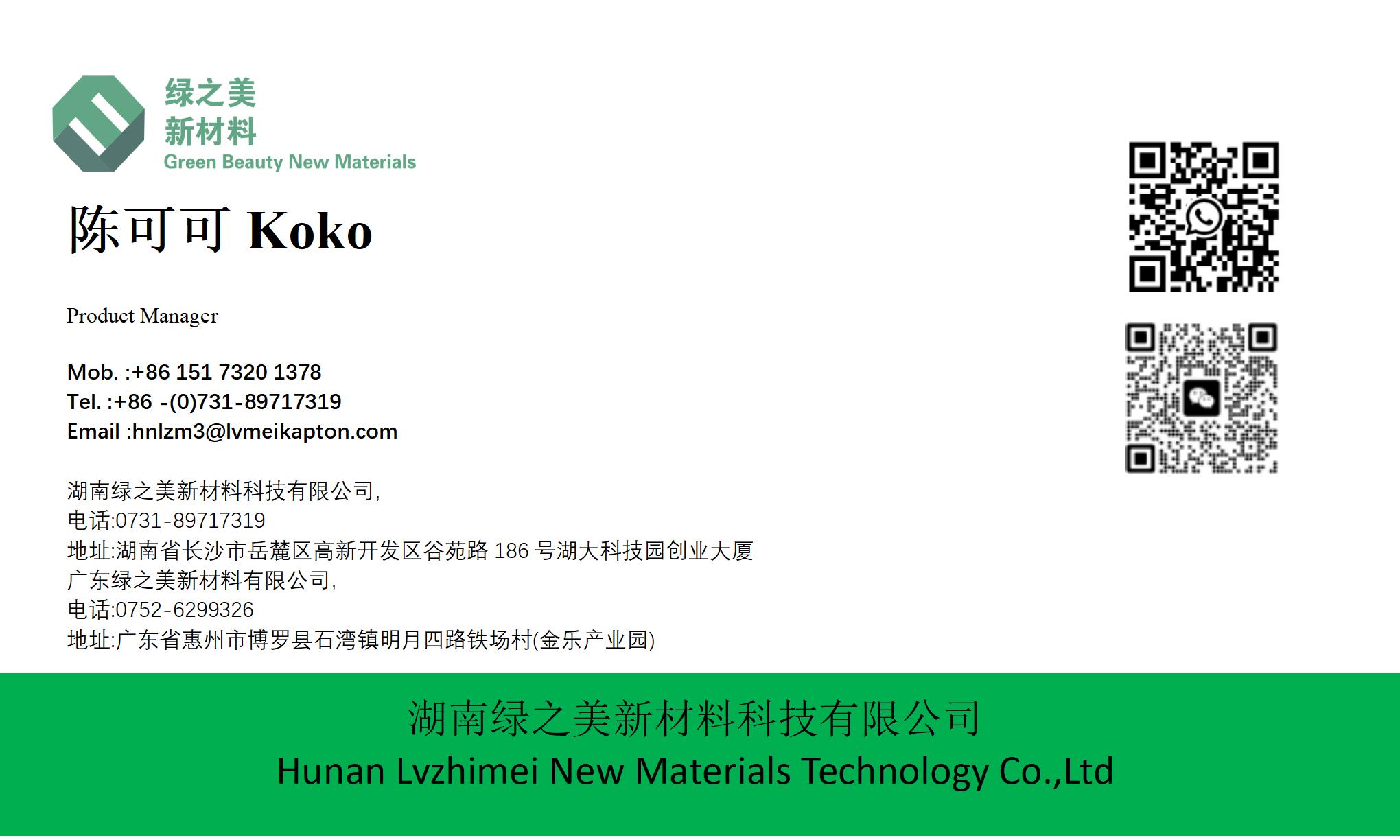hnlzm@lvmeikapton.com
+86 13787123465


Hunan Lvzhimei New Material Technology Co., Ltd.


NameDescriptionContent
Which Industries Benefit Most from High-Temperature Kapton Tape? |https://www.lvmeikapton.com/
Source:
|
Author:Koko Chan
|
Published time: 2025-05-22
|
268 Views
|
Share:
High-temperature Kapton tape, also known as PI tape, is a revolutionary material widely used in various industrial applications. Composed of polyimide (PI) film coated with high-temperature-resistant adhesive, Kapton tape offers exceptional thermal stability, chemical resistance, and electrical insulation. Industries that demand materials capable of withstanding extreme conditions, such as aerospace, automotive, and electronics, heavily rely on Kapton tape to ensure performance, safety, and longevity. This article delves into the key sectors benefiting from this technology, exploring its applications, advantages, and future trends.
Which Industries Benefit Most from High-Temperature Kapton Tape?
High-temperature Kapton tape, also known as PI tape, is a revolutionary material widely used in various industrial applications. Composed of polyimide (PI) film coated with high-temperature-resistant adhesive, Kapton tape offers exceptional thermal stability, chemical resistance, and electrical insulation. Industries that demand materials capable of withstanding extreme conditions, such as aerospace, automotive, and electronics, heavily rely on Kapton tape to ensure performance, safety, and longevity. This article delves into the key sectors benefiting from this technology, exploring its applications, advantages, and future trends.
I. Aerospace ApplicationsThe aerospace industry is one of the primary beneficiaries of high-temperature Kapton tape. Aircraft and spacecraft components operate in harsh environments, subject to extreme temperatures, radiation, and mechanical stress. Kapton tape’s ability to withstand temperatures up to 260°C makes it indispensable for:
1.
Engine and Turbine Insulation:
Kapton tape is used to insulate turbine blades, combustion chambers, and exhaust systems in jet engines. Its thermal resistance prevents heat transfer to surrounding structures, reducing the risk of material degradation and improving fuel efficiency. For example, in GE Aviation’s LEAP engines, Kapton tape is applied to ceramic matrix composite (CMC) components to maintain structural integrity at temperatures exceeding 1,400°C.
2.
Wire and Cable Protection:
Aerospace wiring systems require durable insulation to withstand repeated thermal cycling during takeoff, flight, and landing. Kapton tape’s self-adhesive properties ensure secure wrapping of cables, protecting them from abrasion, moisture, and electromagnetic interference (EMI). NASA’s spacecraft, including the International Space Station (ISS), utilize Kapton tape to safeguard critical communication and power cables.
3.
Thermal Management in Satellites:
Kapton tape plays a vital role in satellite thermal control systems. It is used as a thermal barrier between solar panels and electronic modules, preventing overheating and maintaining optimal operating temperatures. Additionally, its low outgassing properties (minimal release of volatile substances in vacuum environments) make it suitable for space applications.
Table 1: Key Advantages of Kapton Tape in Aerospace
Property | Benefit |
Temperature resistance | Withstands thermal extremes (up to 260°C) |
Electrical insulation | Shields against EMI and voltage up to 10 kV |
Chemical resistance | Protects against fuels, lubricants, and corrosive atmospheres |
Lightweight | Reduces overall system weight, crucial for aerospace applications |
II. Automotive Electronics ProtectionThe automotive industry’s shift towards electrification has intensified the demand for high-temperature materials. Electric vehicles (EVs), hybrid systems, and advanced driver assistance systems (ADAS) generate substantial heat, necessitating robust insulation solutions. Kapton tape’s applications in automotive electronics include:
1.
Battery Pack Thermal Management:
EV battery packs require thermal barriers to prevent overheating and ensure consistent performance. Kapton tape is wrapped around battery cells to isolate heat, enhancing safety and prolonging battery life. Tesla’s Model S, for instance, uses Kapton tape to insulate battery module junctions, maintaining efficiency even under prolonged charging.
2.
Engine Control Unit (ECU) Protection:
Modern ECUs in combustion engines and hybrids face temperatures up to 150°C. Kapton tape is applied to circuit boards and connectors to withstand heat exposure, protect against oil leaks, and prevent short circuits. This enhances the reliability of engine management systems, reducing maintenance costs.
3.
Sensor and Actuator Insulation:
ADAS components like LiDAR, radar, and cameras rely on Kapton tape to protect their electronic interfaces from heat generated by nearby power electronics. This ensures accurate data transmission, crucial for safety-critical systems.
III. PCB Manufacturing with Brown Circuit Board High-Temperature TapePrinted circuit board (PCB) fabrication involves processes like soldering, reflow, and wave soldering, which expose components to temperatures over 200°C. Brown Kapton tape (a variant with higher thermal conductivity) serves as a vital tool in:
1.
Masking and Solder Protection:
During soldering, Kapton tape covers sensitive areas to prevent molten solder from bridging components. Its high adhesive strength ensures it remains firmly attached even under high heat, avoiding costly rework. For example, in surface-mount technology (SMT) assembly, Kapton tape protects gold fingers on connectors from solder contamination.
2.
Thermal Management Layers:
Kapton tape is integrated into multilayer PCBs as an insulating barrier between heat-generating components and thermal pads. This facilitates efficient heat dissipation, preventing thermal runaway in high-power devices like industrial control units.
3.
High-Frequency Circuitry:
Its low dielectric constant and excellent electrical insulation make Kapton tape ideal for 5G communication modules and microwave circuits. By minimizing signal loss, it enhances the performance of high-speed data transmission systems.
IV. Future Industry TrendsAs technology evolves, Kapton tape’s applications are expanding, driven by both innovation and market demands. Key emerging trends include:
1.
Integration with Nanomaterials:
Researchers are combining Kapton tape with graphene or carbon nanotubes to enhance thermal conductivity and mechanical strength. This could revolutionize applications in aerospace thermal management and next-gen electronics.
2.
Sustainability and Recycling:
Environmental concerns are driving the development of recyclable Kapton variants. DuPont, a leading manufacturer, is exploring chemical recycling methods to recover PI polymers, reducing waste in industries like automotive and electronics.
3.
Smart Kapton Tape:
Embedded sensors in Kapton tape are being developed to monitor temperatures, strains, and EMI in real-time. This “smart tape” could transform predictive maintenance in industries like wind energy, where turbine blades require continuous health monitoring.
4.
Expanding into New Sectors:
Industries such as renewable energy (solar thermal systems) and medical devices (high-temperature sterilization equipment) are increasingly adopting Kapton tape for its thermal and chemical resistance properties.
ConclusionHigh-temperature Kapton tape has become a cornerstone in industries where reliability under extreme conditions is non-negotiable. From aerospace’s stringent safety requirements to automotive electrification’s efficiency demands, its versatility continues to drive innovation. As materials science advances, Kapton tape’s evolution—towards smarter, greener, and more durable versions—will further solidify its role in shaping the future of advanced manufacturing.


Hunan Lvzhimei New Material Technology Co., Ltd.
Quick Links
Product Categories
© 2024 Hunan Lvzhimei New Material Technology Co., Ltd.All Rights Reserved. Designed by Erge
0731 - 89717319
hnlzm@lvmeikapton.com
+86 13787123465
Room 502, Chuangye Building, No186, Guyuan Road, High-Tech District, Changsha, Hunan, China
CONTACT









